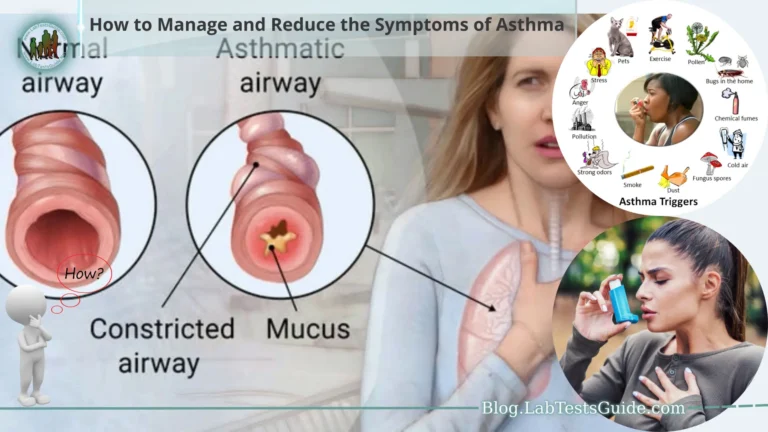Pancreatic cancer is a serious and often aggressive form of cancer that affects the pancreas, a vital organ located behind the stomach. It is characterized by the uncontrolled growth of abnormal cells in the pancreas, which can spread to other parts of the body.

While the exact causes of pancreatic cancer are not fully understood, there are certain risk factors that can increase an individual’s likelihood of developing the disease. These risk factors include age, smoking, obesity, family history, diabetes, and chronic pancreatitis.
Discover ways to reduce the risk of pancreatic cancer through lifestyle changes and healthy habits. Explore dietary choices, regular exercise, and other preventive measures to promote better pancreatic health and overall well-being.
What is Pancreatic Cancer?
- Pancreatic cancer is a type of cancer that originates in the pancreas, a glandular organ located in the abdomen. It is characterized by the uncontrolled growth of abnormal cells in the pancreas.
- The pancreas has two primary functions: producing digestive enzymes that help break down food and producing hormones, such as insulin and glucagon, that regulate blood sugar levels.
- Pancreatic cancer often starts in the ducts of the pancreas, where digestive enzymes are transported. This type is known as pancreatic ductal adenocarcinoma and accounts for the majority of pancreatic cancer cases.
- Pancreatic cancer can interfere with the normal functioning of the pancreas, affecting digestion and hormone regulation. It can also spread to nearby tissues and organs, and in advanced stages, it may metastasize to distant parts of the body.
- The exact causes of pancreatic cancer are not fully understood, but there are certain risk factors that can increase an individual’s likelihood of developing the disease.
- Age is a significant risk factor, as the risk of pancreatic cancer increases with age. Most cases occur in individuals over the age of 65.
- Smoking is another major risk factor for pancreatic cancer. Cigarette smokers are 2-3 times more likely to develop pancreatic cancer compared to non-smokers.
- Obesity and carrying excess weight, especially around the waist, have been linked to an increased risk of pancreatic cancer. Maintaining a healthy weight through regular exercise and a balanced diet can help reduce the risk.
- Family history and genetics also play a role. Having a close relative with pancreatic cancer increases the risk, as does certain genetic conditions such as hereditary pancreatitis and Lynch syndrome.
- Chronic pancreatitis, a long-term inflammation of the pancreas, is associated with an increased risk of pancreatic cancer. Managing pancreatitis and its underlying causes can help lower the risk.
- Diabetes, particularly type 2 diabetes, has been linked to a higher risk of pancreatic cancer. Proper management of diabetes through lifestyle modifications and medical care can help reduce the risk.
- Pancreatic cancer often presents few symptoms in its early stages, making early detection challenging. Common symptoms may include abdominal pain, jaundice, unexplained weight loss, digestive issues, and changes in appetite.
- Treatment options for pancreatic cancer may include surgery, chemotherapy, radiation therapy, targeted therapy, and immunotherapy. The choice of treatment depends on various factors, including the stage and location of the cancer.
- While it may not be possible to completely eliminate the risk of pancreatic cancer, individuals can take steps to reduce their likelihood of developing the disease. These include maintaining a healthy weight, quitting smoking, adopting a healthy diet, managing diabetes, staying physically active, limiting exposure to harmful chemicals, considering genetic testing and counseling for high-risk individuals, and attending regular medical check-ups.
- Early detection and timely medical intervention are crucial for improving outcomes and survival rates. It is important for individuals to be aware of the risk factors, symptoms, and preventive measures associated with pancreatic cancer and to seek medical attention if any concerns arise.
How to Reduce the Risk of Pancreatic Cancer:
Maintain a Healthy Weight:
- Aim to achieve and maintain a healthy weight through a balanced diet and regular physical activity.
- Include plenty of fruits, vegetables, whole grains, and lean proteins in your diet.
- Limit the consumption of processed foods, sugary drinks, and high-fat foods.
- Engage in regular exercise, such as brisk walking, jogging, or cycling, for at least 30 minutes most days of the week.
Quit Smoking:
- If you smoke, quitting is the single most important step you can take to reduce your risk of pancreatic cancer.
- Seek support from healthcare professionals, smoking cessation programs, or support groups to help you quit successfully.
- Consider nicotine replacement therapies or medications that can assist with smoking cessation.
Eat a Healthy Diet:
- Consume a diet rich in fruits, vegetables, whole grains, and lean proteins.
- Opt for foods that are low in saturated fats and trans fats.
- Limit red and processed meat consumption.
- Choose healthy cooking methods such as baking, grilling, or steaming instead of frying.
Limit Alcohol Consumption:
- Excessive alcohol consumption has been linked to an increased risk of pancreatic cancer.
- If you drink alcohol, do so in moderation. The recommended limit is up to one drink per day for women and up to two drinks per day for men.
Manage Diabetes:
- If you have diabetes, work with your healthcare provider to effectively manage your blood sugar levels.
- Follow a balanced diet, engage in regular physical activity, and take prescribed medications as directed.
- Regularly monitor your blood sugar levels and keep them within a healthy range.
Stay Active and Exercise Regularly:
- Engage in regular physical activity to maintain a healthy weight and reduce the risk of pancreatic cancer.
- Aim for at least 150 minutes of moderate-intensity aerobic activity or 75 minutes of vigorous-intensity activity per week.
- Incorporate strength training exercises at least twice a week to build muscle mass.
Limit Exposure to Harmful Chemicals:
- Avoid occupational or environmental exposure to harmful chemicals, such as pesticides, benzene, and certain metals.
- Take necessary safety precautions if you work with or are exposed to hazardous substances.
Consider Genetic Testing and Counseling:
- If you have a family history of pancreatic cancer or inherited genetic conditions, consider genetic testing and counseling.
- Genetic testing can help identify specific gene mutations associated with an increased risk of pancreatic cancer.
- Genetic counseling can provide information, support, and guidance on managing your risk and making informed decisions.
Regular Medical Check-ups:
- Attend routine medical check-ups and screenings as recommended by your healthcare provider.
- Discuss your risk factors and concerns with your doctor to ensure appropriate monitoring and early detection.
Understanding Pancreatic Cancer:
Pancreatic cancer is a complex and potentially deadly disease that affects the pancreas, a vital organ located deep within the abdomen. To better comprehend pancreatic cancer, it is crucial to explore its characteristics, types, stages, symptoms, and diagnosis.
Characteristics of Pancreatic Cancer:
- Pancreatic cancer occurs when abnormal cells in the pancreas grow and divide rapidly, forming a tumor.
- It is often diagnosed at advanced stages due to the pancreas’s deep location and lack of early symptoms.
- Pancreatic cancer is known for its aggressive nature, rapid progression, and relatively low survival rates.
Types of Pancreatic Cancer:
- Pancreatic ductal adenocarcinoma (PDAC) is the most common type, originating in the cells lining the pancreatic ducts.
- Neuroendocrine tumors (NETs) are less common but have different behaviors and treatment approaches.
- Other rare types include acinar cell carcinoma, adenosquamous carcinoma, and pancreatoblastoma.
Stages of Pancreatic Cancer:
- Pancreatic cancer is classified into stages based on the size of the tumor and its extent of spread.
- The stages range from localized (confined to the pancreas) to advanced (spread to distant organs).
Symptoms of Pancreatic Cancer:
- Early pancreatic cancer may not cause noticeable symptoms, leading to late-stage diagnoses.
- Common symptoms include abdominal pain or discomfort, jaundice (yellowing of the skin and eyes), unexplained weight loss, digestive issues, changes in appetite, fatigue, and new-onset diabetes.
Diagnosis of Pancreatic Cancer:
- Diagnostic tests for pancreatic cancer include imaging techniques like CT scans, MRIs, and endoscopic procedures.
- Biopsy samples may be taken to confirm the presence of cancerous cells.
- Blood tests can assess levels of certain markers associated with pancreatic cancer.
Risk Factors for Pancreatic Cancer:
Pancreatic cancer can develop due to a combination of genetic, environmental, and lifestyle factors. While the exact causes of pancreatic cancer are not fully understood, several risk factors have been identified. It is important to be aware of these risk factors to better understand your individual risk and take necessary precautions.
Age and Gender:
- The risk of pancreatic cancer increases with age, and the majority of cases are diagnosed in individuals over the age of 65.
- Men have a slightly higher risk of developing pancreatic cancer compared to women.
Smoking:
- Cigarette smoking is a significant risk factor for pancreatic cancer.
- Smokers are 2-3 times more likely to develop pancreatic cancer compared to non-smokers.
- The risk decreases after quitting smoking but may still remain elevated for several years.
Obesity:
- Obesity and excess body weight, especially around the waist, have been linked to an increased risk of pancreatic cancer.
- The presence of excess fat tissue may contribute to inflammation and hormonal changes that promote cancer development.
Family History and Genetics:
- Having a close relative (parent, sibling, or child) with pancreatic cancer increases the risk.
- Certain inherited gene mutations, such as BRCA1, BRCA2, and Lynch syndrome, can also raise the risk of developing pancreatic cancer.
- Genetic counseling and testing may be recommended for individuals with a family history of pancreatic cancer.
Diabetes:
- Chronic diabetes, particularly type 2 diabetes, has been associated with an increased risk of pancreatic cancer.
- The relationship between diabetes and pancreatic cancer is complex and not fully understood, but high blood sugar levels and insulin resistance may contribute to cancer development.
Chronic Pancreatitis:
- Chronic inflammation of the pancreas, known as chronic pancreatitis, can raise the risk of developing pancreatic cancer.
- Long-term inflammation can cause damage to pancreatic cells and increase the likelihood of cancerous changes.
Ways to Reduce the Risk of Pancreatic Cancer:
Here are some ways to lower your risk.
Maintain a Healthy Weight:
- Aim to achieve and maintain a healthy weight through a balanced diet and regular physical activity.
- Include plenty of fruits, vegetables, whole grains, and lean proteins in your diet.
- Limit the consumption of processed foods, sugary drinks, and high-fat foods.
- Engage in regular exercise, such as brisk walking, jogging, or cycling, for at least 30 minutes most days of the week.
Quit Smoking:
- If you smoke, quitting is the single most important step you can take to reduce your risk of pancreatic cancer.
- Seek support from healthcare professionals, smoking cessation programs, or support groups to help you quit successfully.
- Consider nicotine replacement therapies or medications that can assist with smoking cessation.
Eat a Healthy Diet:
- Consume a diet rich in fruits, vegetables, whole grains, and lean proteins.
- Opt for foods that are low in saturated fats and trans fats.
- Limit red and processed meat consumption.
- Choose healthy cooking methods such as baking, grilling, or steaming instead of frying.
Limit Alcohol Consumption:
- Excessive alcohol consumption has been linked to an increased risk of pancreatic cancer.
- If you drink alcohol, do so in moderation. The recommended limit is up to one drink per day for women and up to two drinks per day for men.
Manage Diabetes:
- If you have diabetes, work with your healthcare provider to effectively manage your blood sugar levels.
- Follow a balanced diet, engage in regular physical activity, and take prescribed medications as directed.
- Regularly monitor your blood sugar levels and keep them within a healthy range.
Stay Active and Exercise Regularly:
- Engage in regular physical activity to maintain a healthy weight and reduce the risk of pancreatic cancer.
- Aim for at least 150 minutes of moderate-intensity aerobic activity or 75 minutes of vigorous-intensity activity per week.
- Incorporate strength training exercises at least twice a week to build muscle mass.
Limit Exposure to Harmful Chemicals:
- Avoid occupational or environmental exposure to harmful chemicals, such as pesticides, benzene, and certain metals.
- Take necessary safety precautions if you work with or are exposed to hazardous substances.
Consider Genetic Testing and Counseling:
- If you have a family history of pancreatic cancer or inherited genetic conditions, consider genetic testing and counseling.
- Genetic testing can help identify specific gene mutations associated with an increased risk of pancreatic cancer.
- Genetic counseling can provide information, support, and guidance on managing your risk and making informed decisions.
Regular Medical Check-ups:
- Attend routine medical check-ups and screenings as recommended by your healthcare provider.
- Discuss your risk factors and concerns with your doctor to ensure appropriate monitoring and early detection.
FAQs:
Is there a surefire way to prevent pancreatic cancer?
While there is no guaranteed way to prevent pancreatic cancer, certain lifestyle choices and risk reduction strategies can help lower the risk.
Can maintaining a healthy weight reduce the risk of pancreatic cancer?
Yes, maintaining a healthy weight through a balanced diet and regular exercise can help reduce the risk of pancreatic cancer. Obesity has been linked to an increased risk of pancreatic cancer, so maintaining a healthy weight is beneficial.
Does smoking increase the risk of pancreatic cancer?
Yes, smoking is a significant risk factor for pancreatic cancer. Smokers are 2-3 times more likely to develop pancreatic cancer compared to non-smokers. Quitting smoking is crucial for reducing the risk.
Are there any specific foods that can lower the risk of pancreatic cancer?
While no specific food can guarantee prevention, a healthy diet that includes a variety of fruits, vegetables, whole grains, and lean proteins is generally associated with a lower risk of cancer. Diets high in red and processed meats have been linked to an increased risk, so it’s best to limit consumption.
Can regular exercise help reduce the risk of pancreatic cancer?
Yes, regular physical activity and exercise have been associated with a lower risk of pancreatic cancer. Aim for at least 150 minutes of moderate-intensity aerobic activity or 75 minutes of vigorous-intensity activity per week.
Does family history play a role in pancreatic cancer risk?
Yes, having a close relative (parent, sibling, or child) with pancreatic cancer increases the risk. Inherited genetic conditions, such as BRCA1, BRCA2, and Lynch syndrome, can also raise the risk. Genetic counseling and testing may be recommended for individuals with a family history.
Can managing diabetes reduce the risk of pancreatic cancer?
Proper management of diabetes, especially type 2 diabetes, can help reduce the risk of pancreatic cancer. It is important to work with healthcare providers to control blood sugar levels through lifestyle modifications and appropriate medical care.
Are there any screening tests available for early detection of pancreatic cancer?
Currently, there is no widely recommended screening test for the general population. However, individuals with a strong family history of pancreatic cancer or certain genetic conditions may be advised to undergo specialized screening or surveillance programs.
Conclusion:
In conclusion, while pancreatic cancer remains a challenging disease with significant risks, there are steps individuals can take to reduce their likelihood of developing it. By maintaining a healthy weight, quitting smoking, adopting a nutritious diet, limiting alcohol consumption, managing diabetes, staying physically active, avoiding harmful chemicals, considering genetic testing and counseling when appropriate, and attending regular medical check-ups, individuals can lower their risk of pancreatic cancer. While prevention is not guaranteed, these proactive measures promote overall well-being and can contribute to a healthier lifestyle. It is important to stay informed, make informed choices, and seek medical advice to address individual risk factors and concerns.






